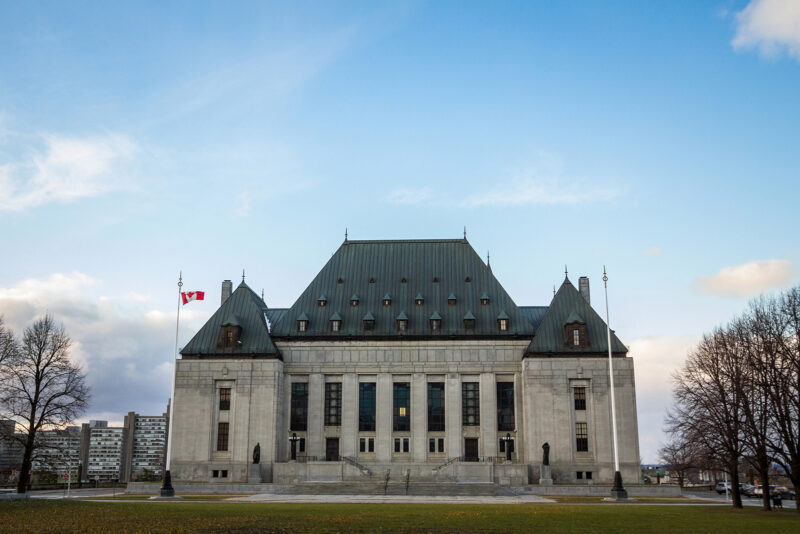Fasken successfully represented several of the respondents before the Supreme Court of Canada in Society of Composers, Authors and Music Publishers of Canada v. Entertainment Software Association, 2022 SCC 30. In its recent decision, the Supreme Court conclusively rejected attempts by SOCAN to “double dip” on copyright royalties via the making available of copyrighted works and in the process helped clarify a number of important legal issues. Some of these issues are unique to copyright law, while others have broader relevance, including issues related to determining the standard of review post-Vavilov and how treaties should be used to interpret statutes.
Context
In 2012, the Copyright Act was amended to add a new section which clarified that “making the work available” for access by users at a time and place of their choosing was an infringement of copyright. Following that amendment, the Society of Composers, Authors and Music Publishers of Canada’s (“SOCAN”) argued that there was now a new right in the copyright bundle, and thus new royalties should be paid every time a word was “made available’’ online. SOCAN’s argument had two practical effects: (1) downloads of a file containing music (like a videogame) would now trigger two royalty payments (one to SOCAN, the other to the holder of reproduction rights); and (2) online streaming would require two separate royalty payments (both to SOCAN).
The Copyright Board agreed with SOCAN, based largely on its interpretation of certain international copyright treaties. The Federal Court of Appeal overturned the Copyright Board’s decision, but declined to interpret the exact scope of the so-called making available. The Supreme Court affirmed the Federal Court of Appeal’s decision, but went further and provided definitive guidance on this issue.
Key Points from the Decision
This is an important case not only for copyright, but also for statutory interpretation and standard of review. The Court found that:
- Section 2.4(1.1) of the Act does not create any right to a second royalty for activities that previously involved only one royalty payment.
- Making a work available for on-demand streaming engages the right to communicate the work to the public by telecommunication, which is a form of public performance.
- The performance right is engaged once the work is made available (i.e. posted on a server available to members of the public) regardless of whether the work is ever eventually streamed.
- The copyright owner is not entitled to one payment when the work is made available and another payment when the work is streamed. Both activities are part of the same public performance which is engaged when the work is made available.
- SOCAN is not entitled to public performance royalties when a work is downloaded or made available for the purpose of downloading. Instead, the act of making a work available for download is protected by a combination of the reproduction right and the right to authorize a reproduction.
- Effectively, the Court has re-affirmed its 2012 decision in Entertainment Software Association v. Society of Composers, Authors and Music Publishers of Canada (‘‘ESA v. SOCAN’’) which distinguished streaming as public performance and downloads as reproductions. Importantly, while ESA v. SOCAN was a 5-4 split decision, the Court’s most recent decision is unanimous on this point.
The Court also ruled on two non-copyright issues of broader relevance to lawyers and businesses operating in Canada. First, the Court reaffirmed traditional restrictions on how treaties can be used to interpret domestic statutes. The Court pointed out that the starting point for statutory analysis must always be the words of the law passed by Parliament, and not the wording of treaties which might be signed by the executive. The Court criticized the Copyright Board for allowing its interpretation of the WIPO Copyright Treaty to overwhelm the wording actually used by Parliament. This aspect of the decision will likely reign in overly-broad arguments based on treaties in the future.
Second, the Court recognized a new category of correctness review under Canada (Minister of Citizenship and Immigration) v. Vavilov, 2019 SCC 65. This is the first such category to be recognized since the Supreme Court issued that foundational administrative law decision in 2019. Here, the Court held that since both trial courts and the Copyright Board must interpret and apply the same sections of the Copyright Act, there was no room for reasonableness review, since both Parliamentary intent and rule of law required correctness review. This aspect of the decision has determined the standard of review for all federal intellectual property tribunals, and would apply equally to any other tribunal which shares jurisdiction with trial courts. The process by which the Supreme Court recognized the exception is also likely to influence how lower courts respond to similar proposed exceptions in the future.
Conclusion
In short, the decision provides for a coherent interpretation of the Copyright Act that is in line with the realities of the distribution of content online, whether via streaming or downloads. Therefore, if and when the content is streamed, no additional royalties must be paid. Streaming is part of one continuous act that began when the work was made available online.
To learn more about our copyright practice and industries visite our intellectual property page and our technology, media and telecommunications page.




